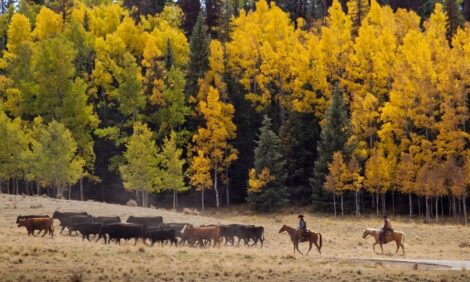



New study suggests that cows fed on spent grain release less methane
Emerging research from Belgium indicates that cows fed spent grains produced while brewing beer produce 13 percent less methane.Research carried out by the Flemish Institute for Agricultural, Fisheries and Food Research (ILVO), explores how cattle feed can influence methane outputs. The researchers focused on spent grains from brewing as previous studies suggested that spent grain could slow down and improve digestion in cattle. It also examined the potential of spent grain to reduce methane production by 11-13 percent.
The research indicates that the spent grains themselves are not enough to reduce methane emissions from cattle. “If we look at spent grains alone added to cattle feed, there’s no reduction of methane,” explained Sam De Campeneere of ILVO. “Only when it is used in combination with rapeseed meal – a residue of the conversion of rapeseed for the oil industry – can we measure less methane. Why that is, we’re not yet able to say.”
“By using the by-products of another process, other raw materials, such as extra soya, do not need to be added to the feed,” De Campeneere said.
During the first stage of brewing, barley and water are mixed and boiled to create wort. That liquid is strained and fermented to produce beer, but the remaining spent grain can be reincorporated into animal feed. This reduces waste and can provide a second source of income for breweries. It also allows farmers to reduce other feed ingredients in cattle diets. This could reduce the ecological footprint of the farm.
Read more about this story here.


